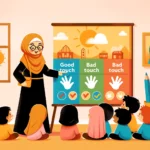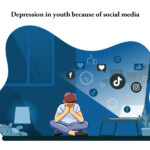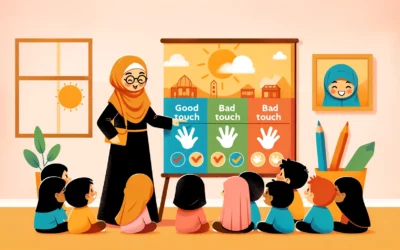Table of Contents
ToggleIntroduction
In the age of the internet, where social media platforms reign supreme, the concept of dawah has evolved significantly. This transformation has been particularly noticeable among young Muslims in North America, who are increasingly turning to online spaces to explore and express their faith. This article delves into the intricate ways in which social media serves as a tool for dawah, its profound effects on the faith and practices of young Muslims, and the broader implications for the Muslim community.
Understanding Dawah in the Digital Age
Dawah, the act of inviting people to understand Islam through words and actions, has found a new frontier on social media. Platforms like Facebook, Instagram, Twitter, and YouTube have become fertile ground for spreading Islamic knowledge and fostering community among young Muslims. This digital transformation has not only made dawah more accessible but also more dynamic, allowing for a multitude of voices and perspectives to be heard.
The Role of Social Media in Dawah
Social media platforms have become key tools in the dissemination of Islamic teachings and the fostering of discussions around faith. Young Muslims are using these platforms to share Qur’anic verses, Hadiths, Islamic lectures, and personal reflections on faith. This form of digital dawah reaches a wide audience, including non-Muslims, thereby broadening the scope and impact of dawah efforts.
Social Media Dawah Strategies for Young Muslims
One of the most significant aspects of digital dawah is the strategic use of social media to engage with young Muslims. Content creators often employ a variety of formats, such as vlogs, infographics, and podcasts, to appeal to the diverse interests and learning preferences of their audience. This approach not only facilitates engagement but also encourages deeper understanding and discussion of Islamic teachings.
The Impact on Faith and Practice
The influence of social media on the faith and practices of young Muslims in North America is profound. On one hand, it offers an invaluable source of knowledge and a supportive community. On the other, it presents challenges such as navigating misinformation and dealing with sectarian divisions.
Strengthening Faith through Online Ummah
For many young Muslims, social media has become a platform for spiritual growth and connection with the wider Muslim community, or ummah. Online discussion groups and forums allow for the sharing of religious experiences and advice, creating a sense of belonging and solidarity among young Muslims.
Challenges and Opportunities
While social media has opened new avenues for dawah, it also presents unique challenges. The sheer volume of information and the presence of divergent views can be overwhelming for young Muslims. Additionally, the anonymity of the internet can sometimes lead to negative discourse and bullying.
Navigating Religious Misinformation Online
However, the digital realm is also fraught with the risk of misinformation. Young Muslims must be discerning in evaluating the authenticity of religious content online. Critical thinking and cross-referencing with credible sources are essential skills in safeguarding one’s faith against misleading interpretations and false teachings.
Promoting Authentic and Inclusive Dawah
One of the key challenges in digital dawah is ensuring the authenticity and inclusivity of the message. Content creators and religious leaders are increasingly focusing on producing well-researched and inclusive content that resonates with the diverse experiences of young Muslims in North America.
Creating Inclusive Online Muslim Communities
Creating inclusive online Muslim communities that welcome diverse viewpoints and experiences is crucial. These communities can serve as safe spaces for young Muslims to explore their faith, ask questions, and engage in meaningful dialogue.
Embracing Diversity in Digital Dawah
The digital age has democratized access to religious knowledge, allowing for a plethora of voices to contribute to the discourse around Islam. This diversity is a strength, offering varied perspectives and interpretations that can enrich a young Muslim’s understanding of their faith.
Fostering Diverse Perspectives in Online Islamic Discourse
To truly embrace diversity in Digital Dawah, content creators and community leaders must ensure that their platforms are welcoming to a range of perspectives. This involves actively combating prejudice and creating spaces where questions and doubts can be addressed without judgment. By doing so, they not only strengthen the faith of individuals but also the unity of the Muslim community at large.
The Role of Technology in Enhancing Dawah
Technological advancements have provided new tools and methodologies for Digital Dawah. From sophisticated algorithms that tailor content to individual users’ interests to virtual reality experiences that bring Islamic history to life, the potential for innovation in the service of dawah is vast.
Incorporating EdTech in Islamic Learning
Educational technology (EdTech) has the potential to revolutionize Islamic learning for young Muslims. Interactive apps, online courses, and gamified learning experiences can make the process of learning about Islam engaging and fun, particularly for the younger generation.
Leveraging Technology for Engaging Islamic Education
By leveraging technology for engaging Islamic education, educators can reach young Muslims on platforms they are familiar with, in formats that resonate with their experiences and learning styles. This approach not only facilitates access to knowledge but also fosters a deeper connection with the teachings of Islam.
Challenges of Digital Privacy and Security
While the benefits of Digital Dawah are many, it’s important to address the challenges related to digital privacy and security. Young Muslims sharing their religious beliefs and practices online may face risks ranging from data breaches to targeted harassment.
Safeguarding Online Spaces
Ensuring the privacy and security of online Muslim communities is paramount. This involves educating users about safe online practices, implementing robust security measures on platforms, and fostering a culture of respect and protection among community members.
The Importance of Mentorship in Digital Dawah
Mentorship plays a crucial role in guiding young Muslims through their spiritual and personal development. The digital realm offers unique opportunities for mentorship, connecting young individuals with knowledgeable and compassionate mentors across the globe.
Virtual Mentorship Programs
Implementing virtual mentorship programs can provide young Muslims with guidance, support, and a sense of belonging. These programs can match individuals with mentors based on interests, challenges, and areas of study within Islam, creating personalized pathways for growth and learning. These programs can also focus on the topic of depression in youth due to social media.
Balancing Online and Offline Islamic Practices
While Digital Dawah offers numerous benefits, it’s vital to maintain a balance between online engagement and offline Islamic practices. The physical aspects of Islam, such as prayer, community gatherings, and charity work, are central to the faith and provide a different dimension of fulfillment and community connection.
Integrating Digital Islamic Learning with Offline Practices
Encouraging young Muslims to integrate their online learning with offline practices can lead to a more holistic approach to Islam. This can involve participating in local mosque activities, engaging in community service, and applying the teachings of Islam in their daily lives. Such integration ensures that the digital enhancement of faith is grounded in the lived experience of being part of a Muslim community.
The Future of Digital Dawah
As we look to the future, the landscape of Digital Dawah is set to become even more dynamic. Emerging technologies such as artificial intelligence and virtual reality offer new possibilities for immersive Islamic education and virtual community experiences.
Exploring Future Technologies in Islamic Education
Exploring these technologies to create interactive and immersive learning experiences can revolutionize how young Muslims engage with their faith. Imagine virtual reality simulations of historical Islamic events or AI-powered tutors for Qur’anic study; the potential is vast and exciting.
Conclusion
The impact of social media on dawah and the faith practices of young Muslims in North America is multifaceted and profound. While it presents challenges, the opportunities for growth, learning, and community-building are immense. As young Muslims navigate their faith journey in the digital age, the Muslim community must support authentic, inclusive, and thoughtful dawah efforts online.
Digital Dawah represents a significant shift in how young Muslims in North America engage with their faith. It offers unprecedented opportunities for learning, community building, and spiritual exploration. However, maximizing the benefits of this digital revolution requires a concerted effort to address its challenges, embrace diversity, and leverage technology responsibly.
By navigating these complexities wisely, the Muslim community can ensure that Digital Dawah serves as a powerful tool for spiritual growth and positive change, enabling young Muslims to deepen their faith in an increasingly connected world.
FAQs
How can young Muslims contribute to Digital Dawah?
Young Muslims can contribute to Digital Dawah by sharing their own experiences and insights about Islam on social media, participating in online discussions, and supporting platforms that offer authentic and inclusive Islamic content.
What precautions should young Muslims take when engaging in Digital Dawah?
Precautions include verifying the credibility of the sources, being mindful of online privacy and security, and engaging in respectful and constructive discourse, avoiding any form of online harassment or conflict.
How can parents support their children’s engagement with Digital Dawah?
Parents can support their children by guiding them towards reputable sources of Islamic knowledge, discussing the content they encounter online, and encouraging critical thinking and open dialogue about their faith.
Can Digital Dawah lead to real-world community involvement?
Yes, Digital Dawah can serve as a gateway to real-world community involvement. Online engagement can inspire young Muslims to participate in local Islamic events, volunteer activities, and educational programs, thereby strengthening their connection to the Muslim community offline.
What role do parents play in their children’s digital Islamic education?
Parents play a critical role by guiding their children towards reputable and beneficial online resources, discussing the content they encounter, and encouraging a balanced approach to online and offline Islamic practices.
How can we ensure the authenticity of Islamic content online?
Ensuring authenticity involves seeking out content from reputable scholars and organizations, verifying information through multiple sources, and encouraging content creators to cite their references and adhere to established principles of Islamic scholarship.
Can digital platforms foster real community among Muslims?
Yes, digital platforms can foster real community by facilitating connections, discussions, and shared experiences among Muslims. However, these online interactions should complement, not replace, the physical gatherings that are central to Islamic community life.
How can young Muslims discern credible Islamic content online?
Young Muslims should look for content from well-known and respected scholars, check for endorsements from reputable Islamic organizations, and cross-reference information with authentic Islamic texts and resources.
What are some effective digital dawah strategies?
Effective digital dawah strategies include creating relatable and engaging content, using multiple platforms to reach a wider audience, and fostering interactive discussions that encourage critical thinking and personal reflection.
How can online Muslim communities be more inclusive?
Online Muslim communities can be more inclusive by promoting diversity in discussions, respecting different interpretations of Islam, and providing a platform for underrepresented voices within the Muslim community.
Can digital dawah replace traditional methods of learning about Islam?
While digital dawah provides a convenient and accessible means of learning, it should complement rather than replace traditional methods such as studying with scholars, attending mosque classes, and participating in community circles, which offer deeper engagement and personal connection.

















